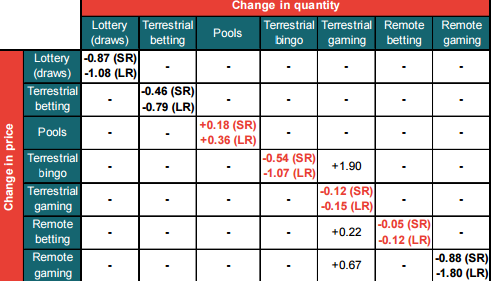HM Revenues & Customs Research – Use of Promotions in Gambling and Relations Between Gambling Activities
As you can imagine, economics is everywhere nowadays. We live in a capital based society, so understanding one’s market – cost of production, supply, pricing and all the dynamics is vital not just for businesses (and even individuals) but even more so – for governments. So understandably, a lot of effort and resources are put into research so that legislations passed can fairly and realistically reflect on the present economic situation and react and adapt to it in the best possible way to the benefit of all involved.
Today we will cover (in short – the full research paper is 144 pages, so if you are interested and have the time you are welcome to read it) the analysis of use of promotions in online and land-based gambling. The report was prepared by one of the largest economics consultancies in Europe – Frontier Economics, for HM Revenues & Customs agency. The aim is to understand how the different perks, used by operators, would be affected by the introduction to tax on those. Bookies in the UK just had a breather after the budget for the year was recently announced and was less bad for them than expected.
Let’s look at the types of promotions first. The most commonly used options are
- Buy one get one free – free bets given if the user purchases tickets/entry for a given game;
- Matched bets/deposits – a percentage by which the minimum deposit is multiplied;
- Free bets/plays – similar to this Landmark bingo review, free bonus funds for players to use on the site prior to depositing;
- Cashbacks – a percentage of losses on the site recovered in bonus funds;
- Loyalty schemes – put in place perks and freebies for returning customers;
- Promotional offers by calendar – offers valid for a specific event or/and calendar date;
There are conditions to those attached such as wagering and other requirements. The abundance of offers, especially when it comes to online play, has created a whole niche of specialist websites, such as www.bingowebsites.net that help players navigate through the hundreds of options. Statistics show that on average, the operators return around 10-30% of their gross winnings in bonuses.
The aim of all the above is to not only acquire clients but also around their retention, reward and continuous active state. So different types of promotions will support different strategies – as a simple example – freebies are targeting the acquisition of new clients and loyalty schemes – keeping returning customers happy and active. The value of the regular players’ rewards is usually estimated based on the expected value they will bring to the operator over their lifetime as site members.
It is interesting to know that the research revealed that freeplay and welcome bonus top-ups are the main and most important reason for first-time customers to choose one site over another. Gambling companies questioned over the course of the study are all of the opinion that most of their customers gamble for fun and so promotions are seen as extra opportunities to prolong their games and not that much as additional chances to win. So the average players don’t expect the odds to turn in their favour just because a bonus is bigger. The size of the jackpot offer is also very determinant of user behaviour. That does not concern poker as this game is seen as one that requires skill, so it less up to chance.
One of the main points of the research, on top of revelling some fascinating insights from the gambling industry, was investigating the link between different gambling entities. So (as a rough example) how the price of roulette raising will affect the use of bingo games? The below graph is a visual representation of such relation:

Factors such as the log of monthly gambling price, monthly stakes, months/weeks/days with special events (sports etc) occur, GDP, unemployment rate, number of weekends in a month etc. were taken to determine the correlation between forms of gambling.
Well that is all for now, I hope you have enjoyed this short snap from the actual research and will be back soon for more interesting and important news, analysis and facts from the world of gambling and law.




